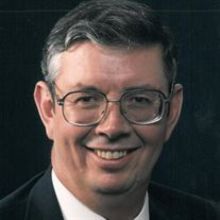How can I even begin to answer that question? My experiences in the Special Collections and Archives Research Center (SCARC) and with SCARC faculty over the past four and a half years have been, in one word, amazing. But beyond that, there are not enough words to even begin to say what this experience has meant to me. Every day there is something new to discover and new people to interact with. But even more importantly, over the past four years I have discovered that my work in special collections and archives has fostered in me a love beyond merely conducting research, but being able to share in others’ work and excitement of discovery in the archives. Through working at SCARC I get to use my background in history and research to share with researchers (and the world through social media!) what amazing collections we have the honor of working with.
I have also had the opportunity to work outreach events, events that I believe are crucial to reaching people outside of the academic setting. I have volunteered to work SCARC open houses and exhibit openings, while also traveling farther afield to work events in Portland. This ability to share SCARC with people beyond those who walk into the reading room is one of my favorite parts of working here. And I LOVE working the front desk. My hours spent working the front desk have been some of the most fulfilling.
While completing my PhD and working at SCARC I also had the opportunity to serve as Deschutes Brewery Archiving Intern. Aside from working full-time while going to school, this was an eye-opening experience that allowed me another opportunity to share the archive experience with those outside of the traditional academic setting. It was also the largest collection I had processed on my own. This was a great learning experience that truly brought the archives to life for me and gave me a project I could call my own. I also valued the opportunity to share the importance of archives for preserving not only company records or artifacts, but the importance of the employees voices in that company history.
But most importantly, I have decided that this is what I want to do for the rest of my life. Despite having spent seven years working on a Masters and then PhD in History of Science, I want to spend my days working at an archive. As I look towards the future and think about what I want it to hold, I know my future plans will ideally include working and teaching in an archive. With the experiences I have gained in my seven years at OSU, four of which I had to honor of spending working in SCARC, I know I don’t want my work in the archives to end. To me, the archives can serve as a place to bring all these experiences together and allow me to pursue a profession that brings together the best parts of being a historian while having the opportunity to share this knowledge through archives and aiding in each researcher’s own research and project development.
Anna Elizabeth Dvorak is a historian of science focusing on science in early Cold War policy. She recently completed her PhD dissertation on Leo Szilard’s fact and fiction here at OSU.

